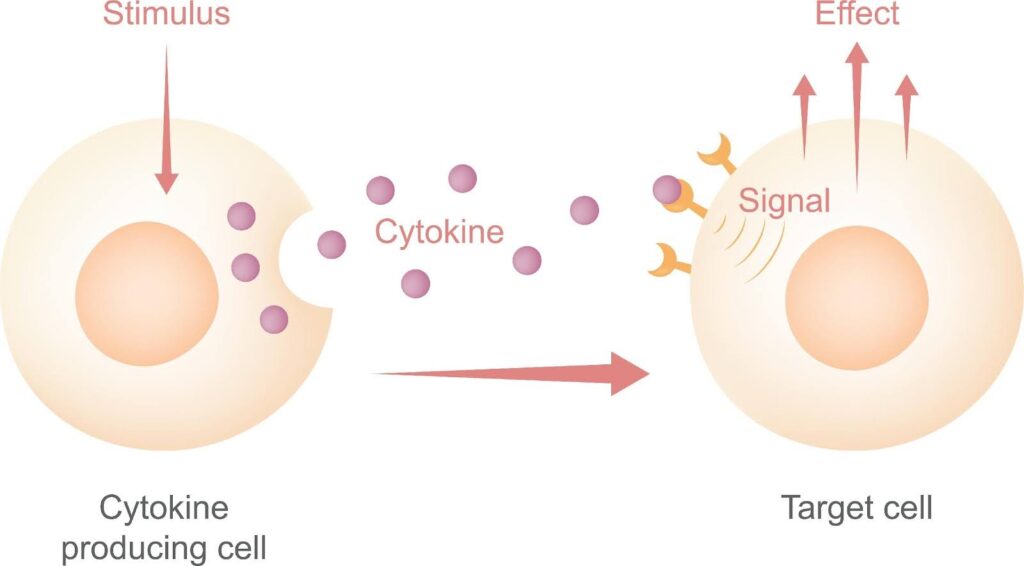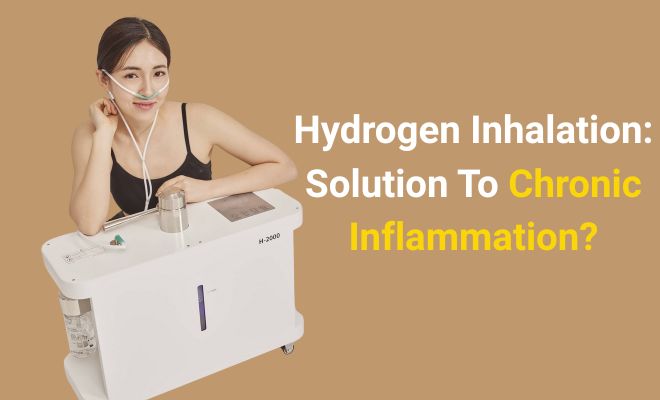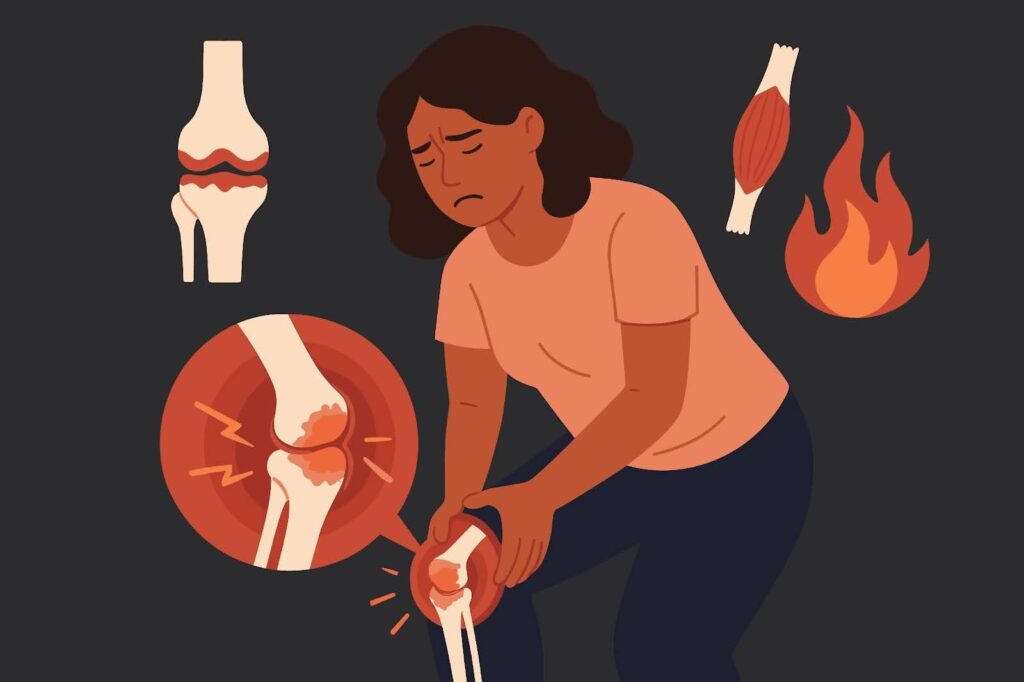When we talk about the world’s most feared diseases—heart disease, cancer, Alzheimer’s, diabetes, autoimmune disorders—one thing ties them all together: chronic inflammation. It lingers quietly, showing almost no symptoms, slowly undermining organ function, weakening healthy cells, and disturbing immune response and activation. This ongoing hidden process contributes to oxidative stress, increased production of reactive oxygen species (ROS), and progressive cell damage, making it widely recognised as a dangerous “silent killer”.
What Is Chronic Inflammation?
Chronic inflammation is a long-lasting, low-grade immune response that can persist for months or even years. Unlike acute inflammation, which protects the body after injury or infection, chronic inflammation continues even after the original threat is gone.
Over time, this ongoing immune activity damages healthy cells and tissues, increasing the risk of conditions like arthritis, heart disease, diabetes, Alzheimer’s, autoimmune disorders, and even some cancers. Because it often develops silently without obvious symptoms, chronic inflammation is sometimes called a “hidden driver of disease.
Why Is Chronic Inflammation So Dangerous?
Chronic inflammation isn’t the same as lingering acute inflammation; it is a persistent condition that stays in the body for years, quietly causing damage to tissues and gradually setting the stage for serious diseases such as heart disease, diabetes, and cancer. Most standard blood tests, like CRP, can detect general inflammation levels, but they don’t reveal which cells, organs, or tissues are being harmed by oxidative stress and excess ROS.
Recently, researchers at Case Western Reserve University have taken diagnosis to a new level, developing special antibodies to track molecular traces left by reactive oxygen species (ROS). This innovative approach pinpoints the actual organs and tissues under inflammatory stress, highlighting cellular expression changes and injury, and opening the door to earlier, more precise, and targeted treatment interventions.

Research paper link: PNAS, 20 2 4
Rethinking Chronic Inflammation
Contrary to popular belief, chronic inflammation isn’t just extended acute inflammation. It arises from two key problems:
- Ongoing production of inflammatory signals like ROS.
- Failure of the body’s natural anti-inflammatory systems to restore balance.
Suppression isn’t enough; what we truly need is to rebalance the body’s internal environment.
This technology is useful for early diagnosis and treatment because it goes beyond simple measurement of existing inflammation indicators (such as CRP) and tells us which areas are under inflammatory stress.
 Hydrogen Inhalation: Science-Backed Explanation
Hydrogen Inhalation: Science-Backed Explanation
Hydrogen gas (H₂) might seem unremarkable, but in the world of antioxidants, it’s a powerhouse. As the smallest antioxidant molecule, hydrogen can penetrate cells and selectively neutralize the worst free radicals (hydroxyl radicals, peroxynitrite) without disrupting essential metabolic reactions.
 Chronic inflammation results from two key issues: persistent inflammatory signaling, such as ongoing production of reactive oxygen species (ROS), and an insufficient response from the body’s anti-inflammatory mechanisms that are meant to resolve and calm the inflammation.
Chronic inflammation results from two key issues: persistent inflammatory signaling, such as ongoing production of reactive oxygen species (ROS), and an insufficient response from the body’s anti-inflammatory mechanisms that are meant to resolve and calm the inflammation.
How Does Hydrogen Inhalation Address Chronic Inflammation?
Let’s break down its multi-faceted mechanism:
| Mechanism of action | explanation |
|---|---|
| Selective ROS removal | Reduces the cause of inflammation by removing excessive reactive oxygen species (ROS) |
| Promotes anti-inflammatory signals | Anti-inflammatory such as IL-10, HO-1, etc. Increased cytokines |
| Cell protection | Prevents cell aging by inhibiting mitochondrial and DNA damage |
| Promotes autophagy | out damaged cells and protein debris to relieve inflammation |
| Restore immune balance | Potential to improve autoimmune problems by regulating excessive immune responses |
How to Reduce Chronic Inflammation
Chronic inflammation can quietly damage cells, tissues, and organs, contributing to diseases like COPD, asthma, cardiovascular issues, and autoimmune disorders. Reducing oxidative stress and restoring immune balance are key to protecting lung function and overall health.
One promising approach is hydrogen therapy. Hydrogen gas inhalation, hydrogen-rich water, and H₂-rich saline have been shown in research studies and clinical trials to provide significant anti-inflammatory effects. By neutralizing harmful ROS and hydroxyl radicals, hydrogen protects cells, reduces proinflammatory cytokines, and supports long-term respiratory and cellular health.
Alongside hydrogen therapy, lifestyle strategies play an important role:
1. Eat anti-inflammatory foods: Include leafy greens, berries, and fatty fish while reducing processed foods, refined carbs, and seed oils high in linoleic acid, which can trigger oxidative stress.
2. Exercise regularly: Moderate physical activity helps lower systemic inflammation, boosts immune activation, and improves lung function.
3. Manage stress and sleep well: Chronic stress and poor sleep increase oxidative stress markers. Mindfulness, meditation, and quality rest help restore balance.
4. Reduce environmental toxins: Limit exposure to pollutants, heavy metals, endocrine disruptors, and excessive EMF, which can increase airway inflammation.
5. Medical support: Regular monitoring of inflammatory markers, lung tissue health, and immune responses ensures early intervention. Hydrogen inhalation therapy can complement traditional treatments for chronic inflammatory diseases.
By combining hydrogen therapy with healthy lifestyle choices, you can help your body reduce chronic inflammation, protect cells, and maintain long-term health and resilience.
Everyday Triggers of Chronic Inflammation
 Our daily habits and environment play a huge role. Major culprits include:
Our daily habits and environment play a huge role. Major culprits include:
- Excess seed oils (heavy in linoleic acid, found in sunflower, soybean oil, etc.)
- High intake of processed carbs, leading to insulin resistance
- Processed foods with artificial additives
- Environmental toxins (plastics, heavy metals, endocrine disruptors)
- Gut toxins caused by increased intestinal permeability (“leaky gut”)
- EMF exposure from devices (smartphones, Wi-Fi, etc.)
Hydrogen inhalation therapy, according to evolving research, may offer protective and anti-inflammatory benefits across all these factors.
The Takeaway: Restoring Balance, Not Just Suppressing Symptoms
Inflammation isn’t a villain; our bodies need it for healing and defense. But the goal isn’t blind suppression; it’s about maintaining a healthy physiological balance. Hydrogen inhalation could be a valuable ally in restoring that equilibrium, working gently in the background as you rest and recover.
- Inflammation is part of the natural physiological healing process, so inflammation is not simply a “bad thing.” Inflammation is a biological response that protects and repairs damaged tissue.
So, as inflammation quietly builds during your busy days, adopting hydrogen inhalation as a restful habit could be a step toward a healthier, more resilient future.
If you’re curious or have questions, feel free to reach out. At Hue Light, we’re dedicated to offering safe, effective hydrogen inhalation solutions for your well-being.
“Inhale hydrogen like breathing. Your healthy future begins with every breath.”
Related Article: Benefits of Hydrogen Inhalation Therapy

 Hydrogen Inhalation: Science-Backed Explanation
Hydrogen Inhalation: Science-Backed Explanation












